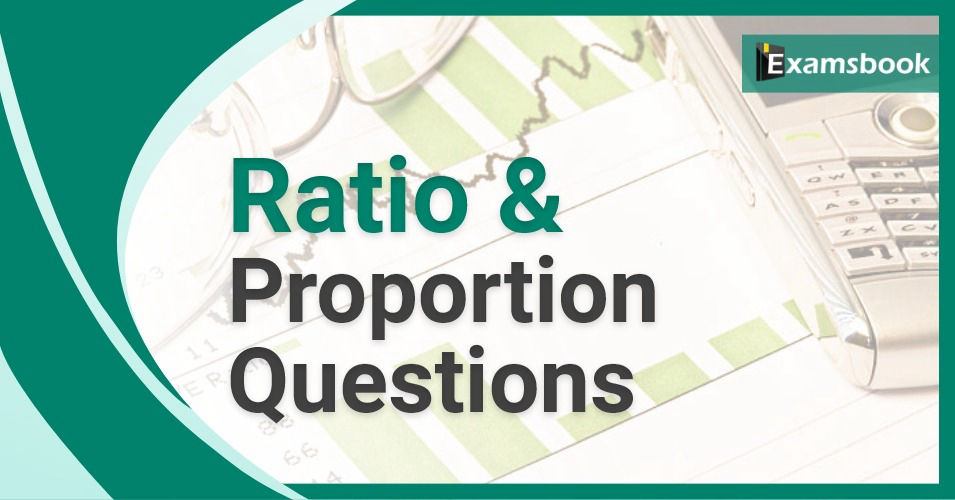


Ratio and Proportion Questions are important for competitive exams' points of view. Here I am providing Ratio and Proportion questions and answers for your practice. So let's practice with selective Ratio and Proportion Questions and answers for competitive exams like SSC and Banking exams.
If you don't want to face any difficulty related to ratio and proportion problems, you should practice ratio and proportion problems with solutions for ssc and bank exams.
Students can solve easily these questions if they know ratio and proportion formulas that how to use formulas in these questions.
Q :
The difference between two whole numbers is 110 and the numbers are in ratio 2 : 7. Find the sum of the two numbers.
(A) 286
(B) 132
(C) 242
(D) 198
The total of the ages of Kiran, Shantanu and Saransh is 93 years. Ten years ago, the respective ratio of their ages was 2 : 3 : 4 . What is the present age of Saransh?
(A) 32 years
(B) 34 years
(C) 24 years
(D) 38 years
The respective ratio between the present ages of Rani and Moni is 6 : 7. If Moni is 4 years older than Rani, then what will be the respective ratio of the ages of Rani and Moni after 4 years?
(A) 4 : 3
(B) 7 : 8
(C) 3 : 4
(D) 3 : 5
If A:B :: 6:11 and B:C :: 6:7, then A:C ::_____
(A) 66:77
(B) 36:66
(C) 36:77
(D) 6:13
Two numbers are in the ratio 3:5. If each number is increased by 10, the ratio becomes 5:7. The numbers are -
(A) 12, 20
(B) 15, 25
(C) 3, 5
(D) 18, 30
In 80 litres mixture of milk and water the ratio of amount of milk to that of amount of water is 7: 3. In order to make this ratio 2: 1, how many litres of water should be added?
(A) 5
(B) 6
(C) 8
(D) 4
The annual income of A and B Aare in the ratio 4: 3 and the ratio a of their expenditures is 3 : 2. If each of them saves ₹ 600 in the year, the annual income of A is
(A) ₹4800
(B) ₹1800
(C) ₹1200
(D) ₹2400
The monthly income of two persons are in the ratio 2: 3 and their monthly expenses are in the ratio 5: 9. If each of themn saves ₹ 600 per month, then their monthly incomes are
(A) ₹1500 : ₹22250
(B) ₹1200 : ₹1800
(C) ₹1600 : ₹2400
(D) ₹1400 : ₹2100
The ratio of the first and second class train fares between two stations is 3: 1 and that of the numbers of passengers travelling between the two stations by first and second classes is 1: 50. If on a particular day. 1,325 are collected from passengers travelling between the two stations. Then the amount collected from the second class passengers is
(A) ₹1250
(B) ₹1000
(C) ₹850
(D) ₹750
If p : q : r = 1: 2: 4, then
(A) 8
(B) 2q
(C) 5p
(D) 4r
Get the Examsbook Prep App Today